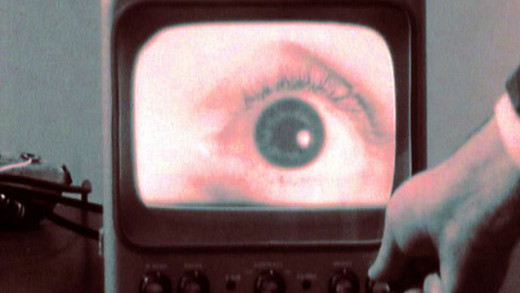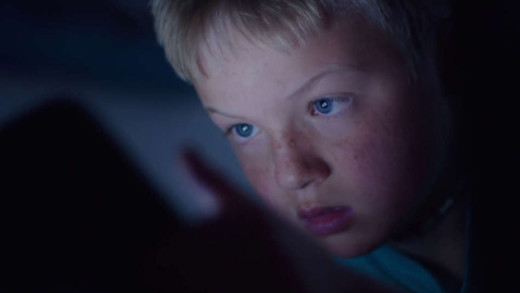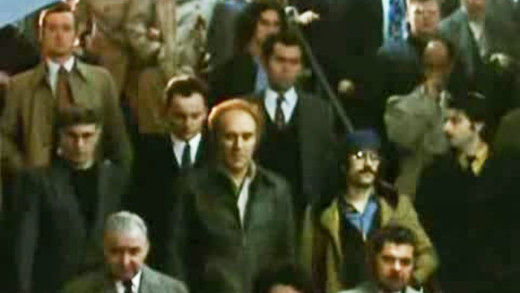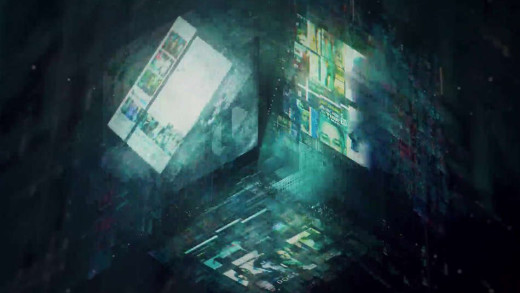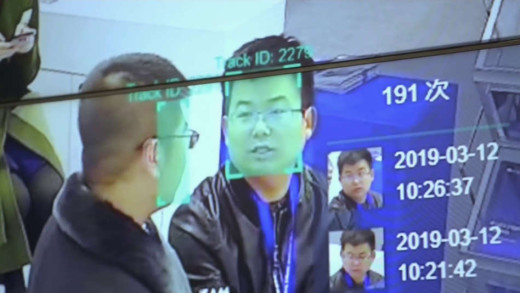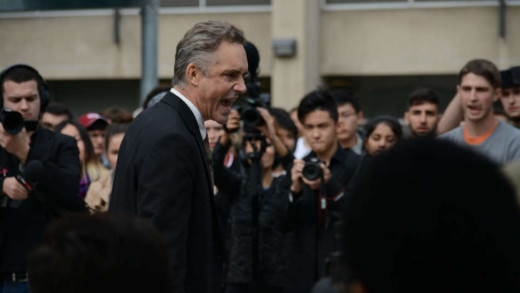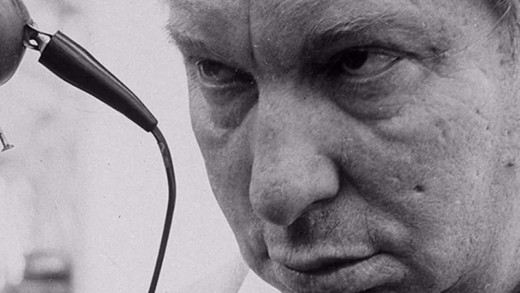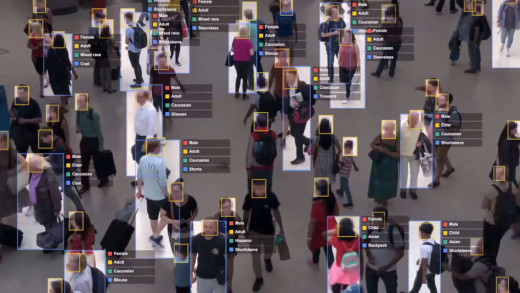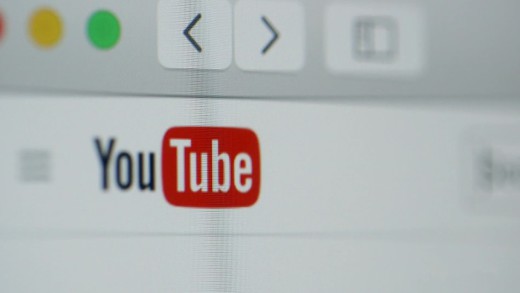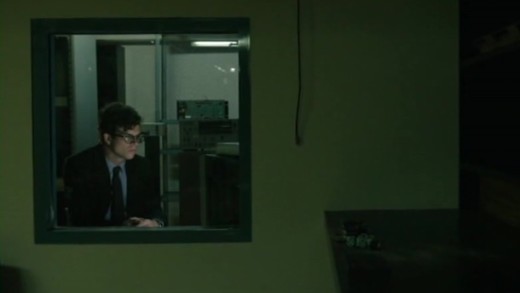Pandora’s Box
Pandora's Box -- A fable from the age of science, is a six part series examining the consequences of political and technocratic rationalism, tying together communism in the Soviet Union, systems analysis and game theory during the Cold War, economy in the United Kingdom during the 1970s, the insecticide DDT, Kwame Nkrumah's leadership in Ghana during the 1950s and 1960s and the history of nuclear power.
Based on the comprehensive work of media scholar George Gerbner, The Mean World Syndrome takes aim at the for-profit media system that thrives on violence, stereotypes, and the cultivation of anxiety. The film takes us through how the more television people watch, the more likely they are to tend to think of the world as an intimidating and unforgiving place, while being insecure and afraid of others. We see how these media-induced fears and anxieties provide fertile ground for intolerance, extremism, and a paranoid style of politics that threatens basic social values. The result is an accessible introduction to debates about media violence and more broadly, the effects of the media system. This film is a powerful tool for helping to make sense of the increasingly intense and fractious political climate of today.
Can't Get You Out of My Head: An Emotional History of the Modern World is a six-part series that explores how modern society has arrived to the strange place it is today. The series traverses themes of love, power, money, corruption, the ghosts of empire, the history of China, opium and opioids, the strange roots of modern conspiracy theories, and the history of Artificial Intelligence and surveillance. The series deals with the rise of individualism and populism throughout history, and the failures of a wide range of resistance movements throughout time and various countries, pointing to how revolution has been subsumed in various ways by spectacle and culture, because of the way power has been forgotten or given away.
All Watched Over By Machines Of Loving Grace is a series of films about how this culture itself has been colonised by the machines it has has built. The series explores and connects together some of the myriad ways in which the emergence of cybernetics—a mechanistic perspective of the natural world that particularly emerged in the 1970s along with emerging computer technologies—intersects with various historical events and visa-versa. The series variously details the interplay between the mechanistic perspective and the catastrophic consequences it has in the real world.
We live in a world of screens. The average adult spends the majority of their waking hours in front of some sort of screen or device. We're enthralled, we're addicted to these machines. How did we get here? Who benefits? What are the cumulative impacts on people, society and the environment? What may come next if this culture is left unchecked, to its end trajectory, and is that what we want? Stare Into The Lights My Pretties investigates these questions with an urge to return to the real physical world, to form a critical view of technological escalation driven rapacious and pervasive corporate interest. Covering themes of addiction, privacy, surveillance, information manipulation, behaviour modification and social control, the film lays the foundations as to why we may feel like we're sleeprunning into some dystopian nightmare with the machines at the helm. Because we are, if we don't seriously avert our eyes to stop this culture from destroying what is left of the real world.
What does it mean when so-called Artificial Intelligence systems increasingly govern all of our civil rights and social interactions? What are the consequences for the people AI systems are biased against? When MIT Media Lab researcher Joy Buolamwini discovers that many facial recognition technologies do not accurately detect dark-skinned faces nor properly detect the faces of women, she delves into an investigation which reveals widespread bias in the algorithms that already drive much of the modern world. As she uncovers, these systems are not neutral, and are already having severe social and political impacts. Coded Bias documents this investigation, and the women who are leading the charge to ensure civil rights are protected from the relentless inertia of technology.
The Brain -- A Secret History is a series about how various theories and experiments on the human mind over decades have led to profound insights into how the human brain works, but also have involved great cruelty and pose terrible ethical dilemmas. Historical experiments such as severe maternal deprivation, brainwashing and other experiments in mind control such as MKULTRA are covered, along with physical interventions such as the history of electric shock 'treatment', behaviour modification, experimental psychology, and the Milgram experiment.
Freakonomics is a segmented adaptation of the book by the same name, by Steven Levitt and Stephen Dubner about incentives-based thinking. The film presents segments to examine the theories of human behaviour and data mining presented in the book through case studies. Subjects include: the influence a person's name has on their personal and social development; corruption in an honor-bound sport such as sumo wrestling; what alleged factors lead to a statistical reduction in crime rates in the United States during the 1990s; and a school experiment to see if cash payments could incentivise students to get good grades. Through these examples and others, the film exposes the problems with data-driven economic incentive models, and the society obsessed with quantitative measuring and data, rather than a focus on quality of outcomes or even what the outcomes are.
Mental illness and suicide have become the greatest threats to school-aged children. Many parents still view dangers to children and teens as primarily physical and external, but they're missing the real danger: young people spending more time online and less time engaging in real life, free play, and autonomy. While older generations might have learned the value of being outside, household chores, and in-person playtime with friends, the youth of today have fallen prey to smartphones and video games. Childhood 2.0 is an exploration of this dramatic technological and cultural shift, where children and parents face the rise of social networks, mobile devices, and the screen culture, along with addiction, withdrawal, anxiety, depression, online abuse, bullying, the pervasiveness of pornography, sexting, the rise of online pedophilia and sexual predators, the loss of playtime, imagination and autonomy, and the rapid growth of suicide among children and teens. In addition to mental health professionals, the filmmakers speak with a series of concerned parents who have witnessed a profound transformation in their children, especially when placed in contrast to their own beginnings. Then there are the children themselves who speak to the overpowering allure of their devices, the pressures these devices place on them in their daily lives, and the challenge they face when they try to turn away from the screen.
Human Resources -- Social Engineering in the 20th Century is about the rise of mechanistic philosophy and the exploitation of human beings under modern hierarchical systems. The film captures how humans are regarded as a resource by corporations--something to be exploited for pecuniary gain--by following the history of psychological experiments in behaviour modification, conditioning and mind control; applying the outcomes to modern day establishment experiments such as institutionalised education, and social engineering by way of things like television...
The Great Hack is an inside account of the company Cambridge Analytica, which used vast amounts of personal data scraped from portals such as Facebook to manipulate elections throughout India, Kenya, Malta, Mexico, the United Kingdom and United States over the past decade. The company, owned by SCL Group--a British firm that has a background in military disinformation campaigns and psychological warfare--came to public attention after the Brexit campaign in the UK, and soon after, the election of Donald Trump in the United States, both closely worked on by Cambridge Analytica and its billionaire backer, Robert Mercer. This resulted in inquires and investigations into both Facebook and Cambridge Analytica, but the company liquidated, along with its internal documents. Two former employees instead step forward to offer an inside account into the dark world of data mining and personalised propagandising, having some regret for what they have done. The film tracks these characters, as Cambridge Analytica lives on as Emerdata Limited, in the same London office. The Great Hack exemplifies big questions about democracy in the age of targeted information manipulation via the screen, and just how much power over our awareness has been ceded to giant corporations.
AI, or Artificial Intelligence, is spouted as the ability of machines to "think" [sic] at a speed and depth far beyond the capacity of any human. Proponents of these digital technologies claim their systems are used in ways that are beneficial for society. But as we see, the current use of AI isn't necessarily aligned with the goals of building a better society. There still remain escalating concerns about labour, the future of work, privacy, the surveillance society, and social control--all valid criticisms that go back many decades--while the rivalry for technological supremacy between the United States and China mirrors the dynamics of the cold war. In the Age of AI is an investigation that touches on these areas, providing a platform to ask fundamental questions about unrestrained technological escalation.
The Power Principle is a series of films examining the history of the United States and the building of its empire with particular emphasis on the last seventy years of United States foreign policy. The methods that make empire possible are also examined—the politics of fear, the rise of public relations, the 'Mafia Principle' and the reoccurring use of fabled enemies, contrasting the Soviet Union and the Cold War alongside the parallels of today with the "War On Terror". Not only does The Power Principle tie together historical events to revive a common thread, the series may also encourage viewers to reconsider their understanding of historical events and the portrayal of them, showing how those in power play a role in manipulating the collective memory through generations.
At the Heart of Gold: Inside the USA Gymnastics Scandal reveals a dangerous athletic culture that prioritised winning over everything else, including protecting young female athletes. For more than 30 years, Larry Nassar worked with gymnasts, as a respected trainer and doctor. He was charming, taught at church, volunteered in the community, and was seemingly well-liked throughout. He treated girls' aches and pains, becoming a friend and confidant to many along the way, while also sexually abusing them during sessions for many years. When some girls began to speak up about their experiences, they were silenced, gaslighted or denied, all the way up to the highest levels of management, across multiple sporting institutions. After many complaints and eventually a cumulative legal investigation, Nassar ends up exposed as a serial sex offender. This film unpacks the scandal, its cover-up, and aftermath, through interviews with dozens of survivors, as well as coaches, lawyers and journalists, as one of the most high-profile paedophile trials in recent years. It documents the grooming, methods, and psychology of a charismatic sexual abuser, as well as the culture that enables and perpetuates it.
Shifty
Shifty is a series of films that traverse the past 40 years in Britain, showing how the shift of political power to finance and hyper-individualism came together in powerful ways, to undermine one of the fundamental structures of mass democracy--the shared idea of what is real. As that fell apart, with it went the language and the ideas that people had turned to for the last 150 years to make sense of the world they lived in. As a result, life in Britain and the current and former colonies of its empire, has become strange--a hazy dream-like flux, where distrust in politicians keeps growing, and the political class seems to have lost control. Through archive footage, news reels, and on-screen-text in video essay format, Shifty documents the shapes of how this happened, using the vast ranges of footage to evoke what if felt like to live through an epic transformation during the 1980s.
The Milgram experiment on obedience to authority figures was a series of social psychology experiments conducted by psychologist Stanley Milgram in July 1961, three months after the start of the trial of German Nazi war criminal Adolf Eichmann. The experiment set out to measure the willingness of study participants to obey an authority figure who instructed them to perform acts conflicting with their personal conscience, in an attempt to answer the popular question at that time: "Could it be that Eichmann and his million accomplices in the Holocaust were just following orders?"
University of Toronto psychology professor Jordan Peterson launched into the public eye after he published a controversial video series entitled Professor Against Political Correctness in 2016. Within 2 years, he sells over 3 million copies of his self-help book, appears on numerous television shows, and fills theatres with his lectures. At the same time, he endures a swell of backlash, including that from a former colleague that now labels him as a dangerous threat. After mobilising some on the right for his criticisms of the left, Peterson fends-off being labelled a right-wing figurehead while moving through the media spectacle, arguing his shifting philosophical views. Filmed during this period of Peterson's rise to fame, and told through family, friends, and foes, The Rise of Jordan Peterson presents a complex kaleidoscopic narrative and personal portrait, enabling the viewer to examine Peterson in several different ways, while considering his wide and often conflicting range of perspectives and social commentary.
Going Clear
Going Clear: Scientology and the Prison of Belief profiles eight former-members of the cult of Scientology, leading to a series of revelations of the history of systematic abuse, manipulation, and betrayal in the organisation by Scientology officials and celebrity figures. The film highlights the origins of Scientology, from its roots in the mind of founder L. Ron Hubbard and successor David Miscavige, to its rise in popularity in Hollywood and beyond. The result is a record of great harm, paranoia, abuse, the vast accumulation of wealth, and a lust for power and control.
In a quarter of a century, the Amazon corporation has propelled Jeff Bezos from 'online bookseller' to technology behemoth. He is the richest man on the planet, and the company he founded is one of the most powerful in the world. This documentary investigates Amazon's rise to corporate rein, revealing the problematic inside-operations that have the public tethered to its services. Former high-level insiders describe Amazon's obsessive data-gathering operations, that enable the company to use what it knows about us to shape not only the future of retail, but the workplace and technology in synergy. On both sides of the world, politicians and regulators are tardily beginning to question Amazon's power. But can the public rein in this corporate empire and break its addiction before even more damage is done to the structure of society and the environment?
Merchants of Doubt looks at the well established Public Relations tactic of saturating the media with shills who present themselves as independent scientific authorities on issues in order to cast doubt in the public mind. The film looks at how this tactic, that was originally developed by the tobacco industry to obfuscate the health risks of smoking, has since come to cloud other issues such as the pervasiveness of toxic chemicals, flame retardants, asbestos, certain pharmaceutical drugs and now, climate change. Using the icon of a magician, Merchants of Doubt explores the analogy between these tactics and the methods used by magicians to distract their audiences from observing how illusions are performed. For example, with the tobacco industry, the shills successfully delayed government regulation until long after the health risks from smoking was unequivocally proven. Likewise with manufacturers of flame retardants, who worked to protect their sales after the toxic effects and pervasiveness of the chemicals were discovered. This is all made analogous to the ongoing use of these very same tactics to stall governmental action in regards to global climate change today.
In 2018, Professor Shoshana Zuboff published The Age of Surveillance Capitalism, a monumental book about the new global economy, where the biggest technology corporations extract, manipulate, and trade our personal information, data about our lives, and data about our personalities, on a scale never before possible. How did this happen? In The Big Data Robbery, Zuboff starts with the volatile dot-com boom and bust of the late 1990s and 2000s. How did Google, a company created during that time, survive the bursting of the Internet bubble? Founders Larry Page and Sergey Brin discover that the "residual data" that people leave behind in their searches on the Internet is very precious and tradable, and begin as one corporation of many, the Big Data Robbery, extracting and building huge datasets about people. Zuboff takes the lid off Google and Facebook to reveal a merciless form of capitalism in which the citizen itself now serves as a raw material.
Did you know that the legal system recognises a corporation as a person? What kind of 'person' is it then? What would happen if it sat down with a psychologist to discuss its behaviour and attitude towards society and the environment? Explored through specific examples, this film shows how and why the modern-day corporation has rapaciously pressed itself into the dominant institution of our time, posing big questions about what must be done if we want a equitable and sustainable world. What must we do when corporations are psychopaths?
This short video explores how the online world has overwhelmingly become the popular outlet for public rage by briefly illustrating some of the many stories of everyday people which have suddenly become public enemy number one under the most misunderstood of circumstances and trivial narratives. With the web acting like a giant echo-chamber, amplifying false stories and feeding on the pent-up aggression of the audience watching the spectacle, The Outrage Machine shows how these systems froth the mob mentality into a hideous mess, as a good example of where the spectacle goes and how its intensity has to keep ratcheting up in order maintain the audience attention, in a culture of dwindling attention spans, distraction and triviality.
The Social Dilemma brings together former product directors and designers of Facebook, Google, Instagram, Pintrest, Twitter, and so on, to reflect on their creations and face questions about the age of addiction, information manipulation, and algorithmic social control they've ushered in. The creators speak openly about how they themselves took part in this co-optation of society, either naively or with malignant indifference, by designing websites in such a way to influence and manipulate billions of people for corporate interests by using deep psychological and addictive triggers in the human mind. Detailed explanations about how this can play out in the real world are illustrated through dramatisations, which are also expanded upon by experts in psychology, technology, and social studies. The result is a sobering call for emergency damage control, to undo the massive harm that technology companies have unleashed on society unrestrained for the past several decades, at a time of rapid social unravelling.
To many in both business and government, the triumph of the self is the ultimate expression of democracy, where power is truly moved into the hands of the people. Certainly the people may feel they are in charge, but are they really? The Century of the Self tells the untold and controversial story of the growth of the mass-consumer society. How is the all-consuming self created, by whom, and in whose interest?
Random 8
In groups we are told what to do, but do we always do so? Do groups give us courage to obey, or do they inhibit us? How do protest and change emerge? In Random 8, a randomly selected group of eight people from all walks of life are brought together in a bare room, mobile phones are confiscated, and cameras record their reaction to a series of simple instructions that escalate in intensity and in degree of challenge. The film cites the issues raised by several famous psychological experiments, including the work of Stanley Milgram in the 1960s who studied human obedience to orders, even when the orders were immoral or caused pain to others; and the work of sociologist Bill Gamson et al, in which groups were asked to carry out unjust requests made by an authority figure. What can happen when we're asked to do something that goes against our beliefs?
Physician and mother of two Dr. Delaney Ruston became interested in how much screen time is too much when her preteen started begging for a smartphone. Ruston saw other parents equally confused on how to balance technology with a young developing mind, so she decided to delve into the science behind screen time to understand how it affects young people's minds and development. Through personal stories and input from leading researchers, the result is Screenagers, a film that sheds light on the impact screen time is having on kids; exploring how learning, playing, and socialising online effects teens' developing attention span, fragile self-esteem, and moral instincts. Screenagers examines the real risks of failing in school, social isolation, and digital addiction. It also explores solutions to handle screen time and provides parents with tools to help young people develop self-control and find balance in their digital lives, rather than rapid-fire thumbs and a six-second attention span.
In the early 1940s, hundreds of thousands of people unknowingly became test subjects in toxins experiments and biological weapons tests conducted by the United States government. LSD tested on civilians, nerve gas sprayed into suburbs, hospital patients injected with plutonium, children exposed to biological and chemical agents just to see what would happen...the list goes on. And in most if not all cases, tests were carried out without the knowledge or consent of those involved. In 1996, evidence of these secret operations hit the news, uncovering a history of secret operations and covert projects that cast a large shadow over the operations of US military and intelligence agencies, to this day. Experiments with biological weapons and the testing of chemical warfare were only part of the story...



